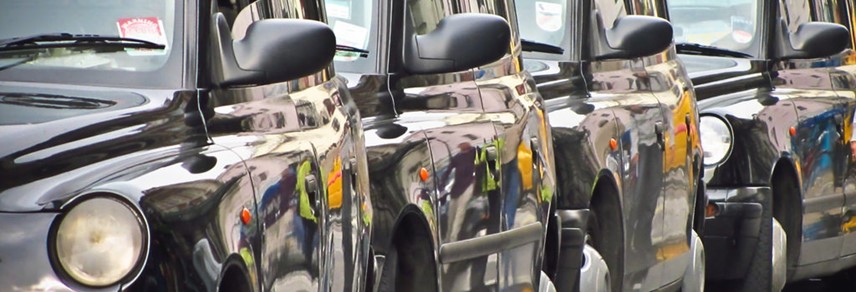
RED LIGHT FOR UBER IN LONDON
Banned in Nevada, in parts of India, in Fukoka, Japan, in Eugene, Oregon. Now, banned in London. Shock waves rippled through London as Transport for London (TfL) announced earlier today that Uber would be banned from the streets of the capital, beginning on 30 September.
It’s a story of London and of tech versus analogue and of ‘disruption’ as a bad word. But it’s also a story of lobbying, of reputation, of brand positioning. It’s a loss for the tech giant, but a win for taxi companies. It’s a loss for Uber’s reputation, but so too might it be one for TfL and black cabs themselves. Twitter has been awash with criticisms and the media has pointed out that there are many London-based Millennials who love and rely on the app. But, public opinion aside, the decision was in keeping with TfL’s positioning on health and safety.
Looking back at the recent history of private driver transport in London, TfL has run campaigns educating London’s public about the differences between taxis and private hire cars, including the dangers of unbooked minicabs.Private hire vehicles have been licensed since the 1960s, when TfL took over their regulation from the Metropolitan Police. Though its goal is to keep London moving, its positioning toward taxis and private hire vehicles has always been centred on safety. In TfL’s 2016 ‘Taxi and private hire action plan’ mayor Sadiq Khan says, “The taxi trade is an icon of our city and should be supported. While the legitimate private hire trade is an asset to London, we must not be complacent in ensuring it is safe for passengers. The need for greater enforcement and compliance, as well as stricter entry requirements, is clear for all to see.”
Black cab drivers undergo years of training not just so they can find their way around a complex city, but to ensure they are fit for driving strangers around that city. Private hire companies have to adhere to TfL’s standards of safety in order to be licensed.
The decision to revoke Uber’s licence is explicitly about safety. TfL’s press statement says, “Private hire operators must meet rigorous regulations, and demonstrate to TfL that they do so, in order to operate. TfL must also be satisfied that an operator is fit and proper to hold a licence.” The decision comes on the wake of a wave of challenges the company has faced regarding its corporate culture, leadership and safety standards.
“From day one, Uber has struggled with repetitional difficulties – often ignored – as a result of a lack of appropriate governance and a weak CSR structure,” says James Bickford, MD at the Reputation Institute, which studies corporate reputation globally. He adds that the issues regarding customer welfare have “caught up with them” and that it will be challenging for Uber to overcome these perceptions and crises. Uber has a RepTrak score of 57.3 (out of 100), where companies toping the rankings typically pull above a 75. Uber’s 57.3 is identical to Lloyds Banking Group’s, this year.
Both the Licensed Taxi Drivers Association (LTDA) and the GMB Union, action and representation groups for London’s black cab drivers, applauded the decision – coming as a triumph for their lobbyists and communications. The LTDA has put out a handful of tweets commending its supporters. “Together, we fought uber and together, we won,” says one tweet. The GMB calls it a “historic victory.” Maria Ludkin, GMB’s legal director says, “This historic decision is a victory for GMB’s campaign to ensure drivers are given the rights they are entitled to - and that the public, drivers and passengers are kept safe. No company can be behave like it's above the law, and that includes Uber. No doubt other major cities will be looking at this decision and considering Uber’s future on their own streets.”
TfL has stuck to its guns, as have the organisations representing London’s professional cabbies. Time will tell if the decision will be appealed or if London’s Uber users will respond poorly to TfL’s decision. In the meantime, cabbies can enjoy Prius-free streets, Londoners can enjoy safer, regulated transport and Uber can get to work on its corporate reputation.
